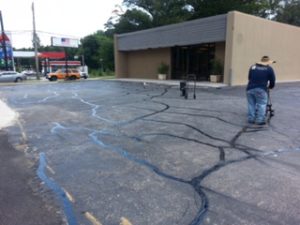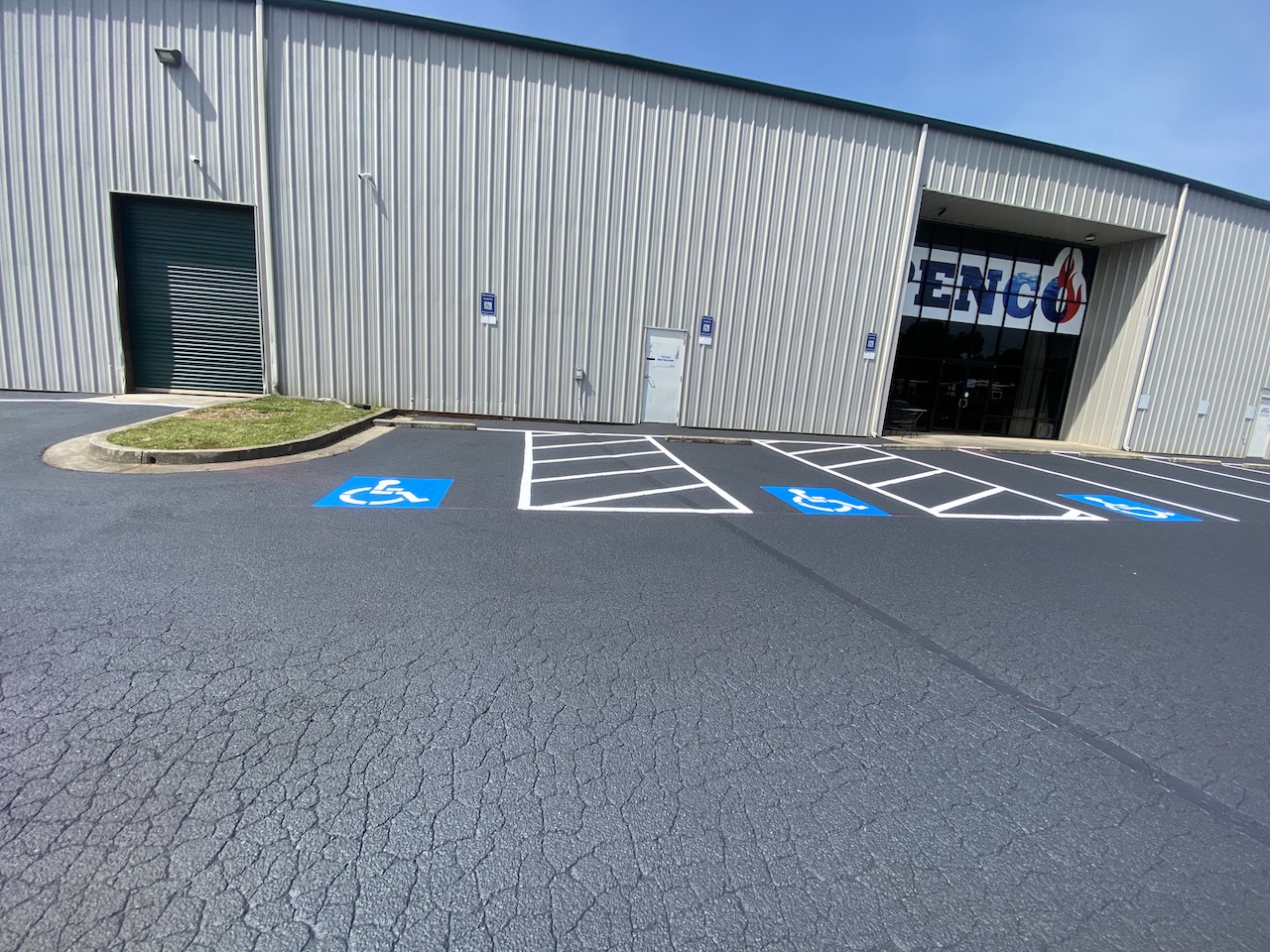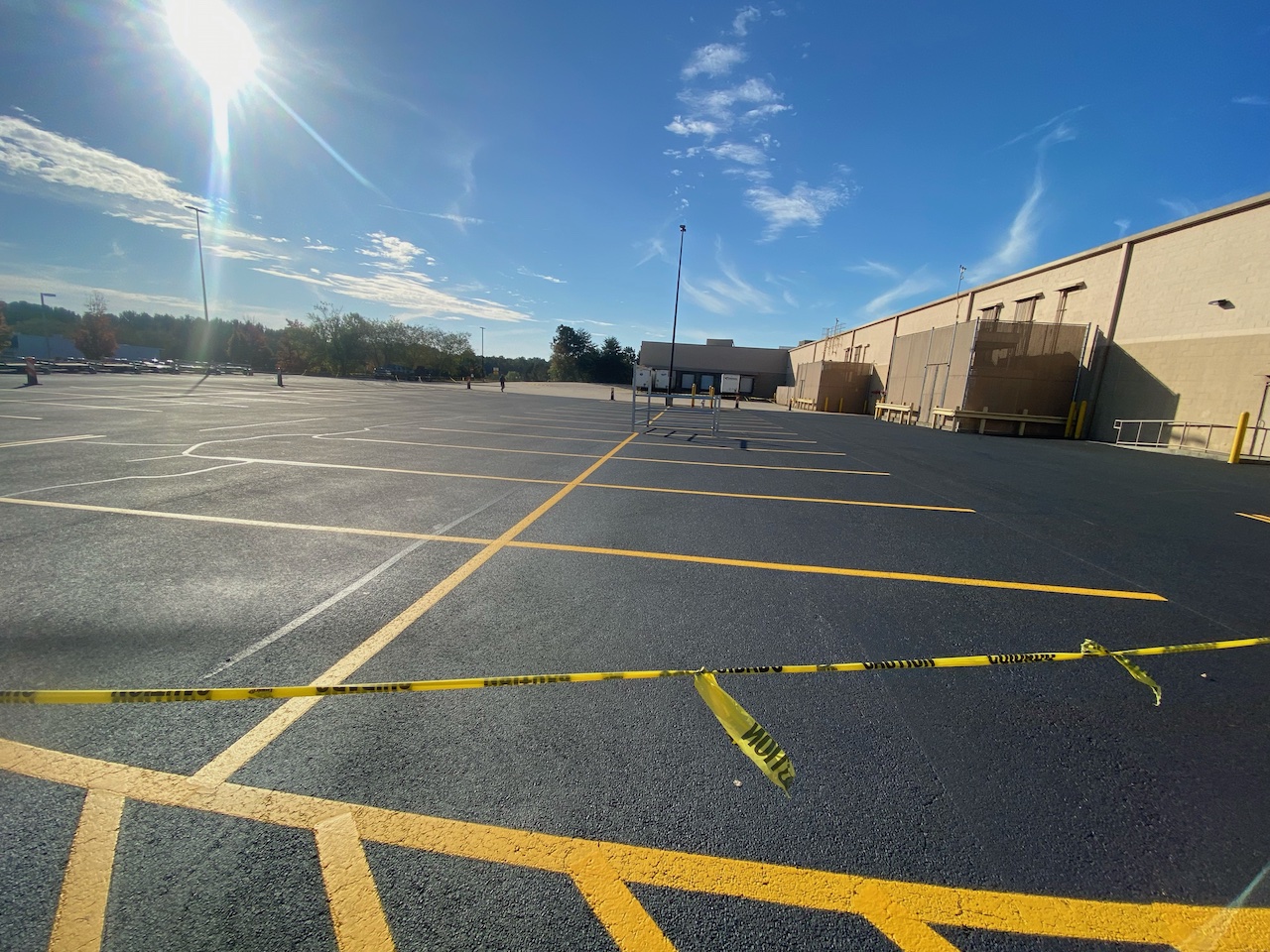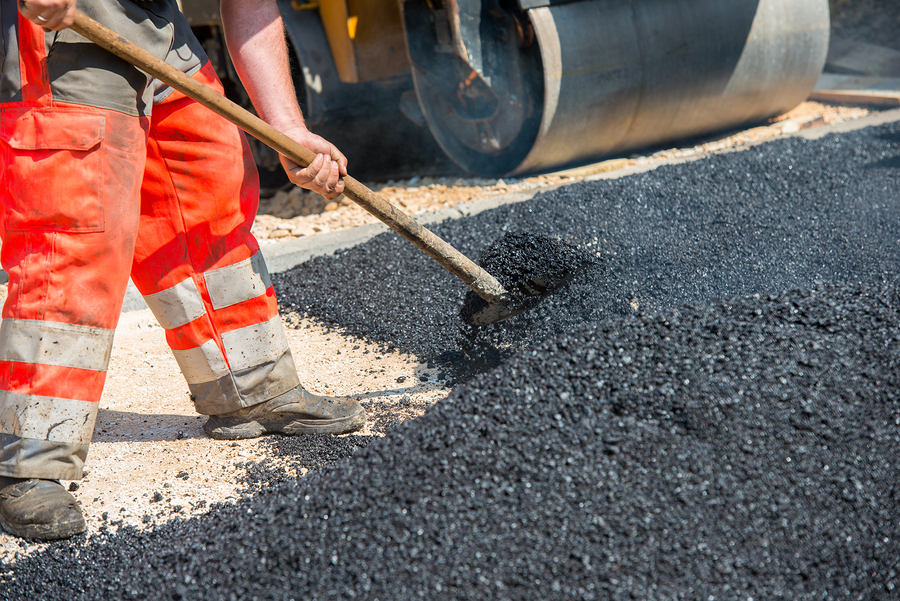
Asphalt Crack Sealing – Is This Effective? What Is Asphalt Crack Sealing?
When sealing a crack in asphalt pavement, the contractor will thoroughly clean the crack, insert a crack sealer and usually extend the sealer onto the surrounding pavement. Crack sealers are rubberized, flexible materials that have excellent bonding capabilities. Therefore, a crack sealer will remain bonded to the sides of the crack even when the pavement contracts, expands or is subjected to the movement of the underlying soil.
What Is Asphalt Crack Filling?
Crack filling is similar to crack sealing, but there are some important differences. Asphalt crack filler is not rubberized, so it becomes rigid after it cures and cannot move or flex the way that crack sealers do. The bond between crack filler and the pavement can be broken, leaving a gap that allows water to enter. Because the material used for crack filling is inflexible, it is usually inserted only into the crack and not spread onto the nearby pavement.
Does a Contractor Ever Need to Use Both Methods for the Same Pavement?
There are many times when some cracks need to be sealed, but cracks appearing in a different area of the pavement require filling. Crack sealers are ideal for virtually all types of cracks, but they are a necessity for cracks that are still active and continuing to expand. Asphalt crack filler will be quickly dislodged if placed in an active crack, so filling should only be considered for inactive cracks.
A crack filler is often preferred for block cracks and longitudinal edge cracks. Filling may be an option for some reflective cracks and joint cracks. However, virtually all transverse cracks should be sealed rather than filled. The width of the crack, its annual rate of movement and the size of secondary cracks will also be considered by the contractor when deciding the effectiveness of sealing the crack rather than filling it or installing a patch.
Are All Asphalt Crack Sealers the Same?
There are several manufacturers producing crack sealers, and most companies produce several types. They may differ in their adhesive and cohesive properties, their flexibility and elasticity, their curing time and their resistance to weathering, abrasion and heat. Therefore, it is important to choose an experienced asphalt contractor who understands the different properties of the various sealers so that the best sealant for the job can be selected. It is also important to hire a contractor who knows how to properly prepare the crack for sealing.
Why Is MH Greeson Paving the Right Company to Choose?
MH Greeson Paving is an asphalt contractor focuses on providing customers with exceptional work at the best price possible without sacrificing customer service or personal attention. We specialize in the maintenance and repair of asphalt pavements throughout Atlanta and North Georgia and handle jobs of all sizes. Our services include asphalt crack repairs, parking lot striping and pavement markings, asphalt sealcoating, asphalt paving, stenciling, asphalt repair and the installation of bollards, wheel stops and traffic signs. To receive a free quote, just submit the online request form or call our office at 770-335-2983.




